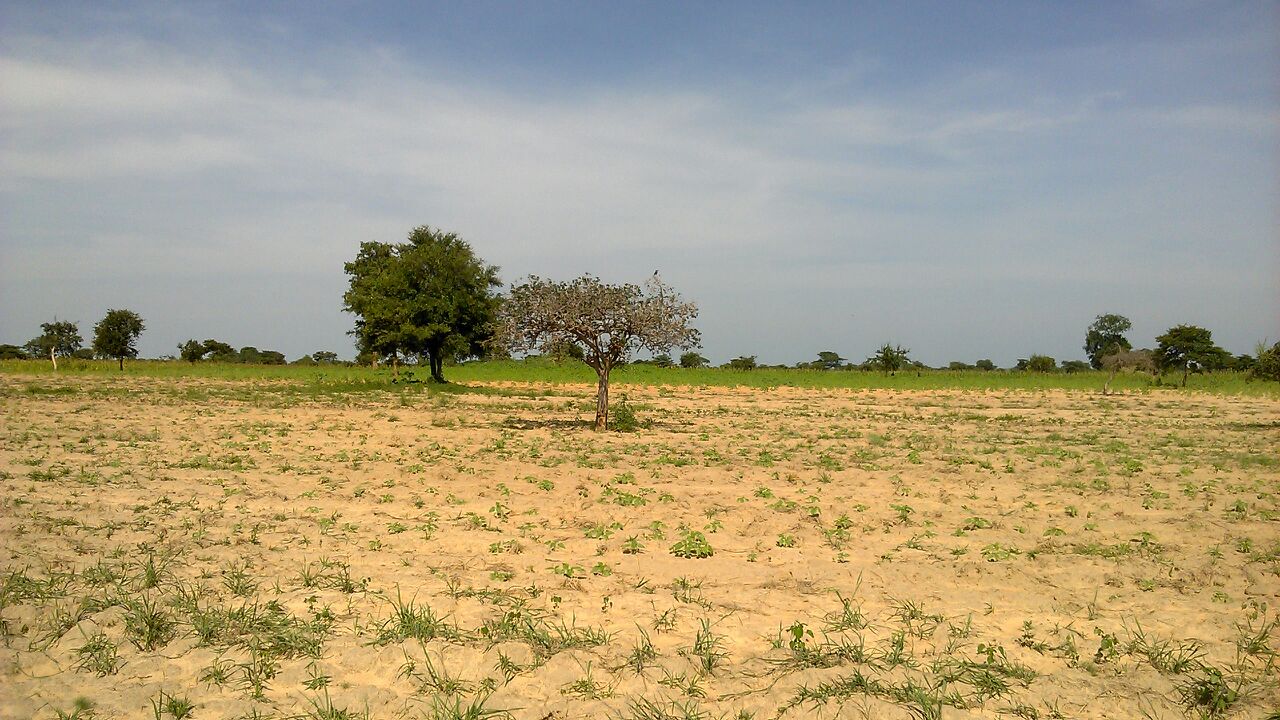Poor rains dampen Gwanda, Bulilima farmers’ spirits

Sifelani Tsiko Agric & Innovations Editor
“Mgoaha wa2022 kitlala fela,” says Progress Tlou (37), a farmer from Mkhaliphe village in Gwanda South district in her SeSotho language.
Roughly translated, she says the 2021-2022 farming season is a drought for real.
After having secured very good yields in the 2020-2021 cropping season, erratic rains in the current farming year have left her disappointed.
“This cropping season is a real disaster; 2022 is a drought year for real. A dry spell in February this year killed all hopes of a good yield,” she says.
“Last season I got a total of 42 bags of millet, sorghum and maize. I got a bumper crop, I sold some and now I am left with 10 bags which are not enough to take me to the next season.
“This season I will be very lucky to get even three bags. There is nothing in our fields. Extreme heat around February damaged our promising crops.”
Last season, Zimbabwe received above average rains and was forecast to receive good rains during the 2021/22 cropping season.
However, erratic rains and poor distribution of rains have dampened the spirits of most farmers in the dry and arid Gwanda and Bulilima districts.
“Our area is too dry and we never got good rains this season. It’s a drought and most of the people here will require food aid,” says Joram Ndlovu-Madzikite, councillor of ward 20 that covers four villages that include Mkhaliphe, Seboza, John Dip and Ngoma.
“At present, the Government is providing food to the elderly and vulnerable sections of our community. More food will be needed this year for many people in our area.”
He says NGOs had stopped relief programmes in his area as many farmers got better yields last season.
“My crops are a total write off and I won’t harvest anything this season,” says Polite Muleya, 67, from Madida Line in Mkhaliphe village. “I may get two bags of sorghum and two bags of maize. This is not enough. The rains were not good this season. We will need food assistance from around July onwards.”
Some farmers are already reeling from the drought. They are buying a 50-kilogramme bag of mealie-meal for R350.
“I don’t know how we will survive for the rest of the year. Government must quickly move in to assist us with food. Many people here have nothing in their fields,” says Muleya.
A similar situation is playing out in Bulilima District in the southern part of the country.
“We don’t have anything in our fields. Our crops wilted and we will not harvest anything at all,” says Sukoluhle Nleya (46), a widow from Hikwa village in Bulilima.
“We need more garden irrigation projects and sand dams to help us cope with droughts. Food assistance, yes, but it’s not the answer to our hunger problems.”
Nanny Ndlovu, a councillor from Ndiweni village said: “Water is our number one need here in Ward 21 of Ndiweni. Most farmers in Ndiweni, Sobomvu, Thekwani and Jinjika villages have nothing in their fields.
“We need more projects that will help us establish gardens and other income generating activities to help us cope with droughts.”
Practical Action, a non-governmental organisation, has since moved in and implemented a Planting for Progress project in Gwanda and Bulilima rural district mean to mitigate against the effects of drought.
The £1,49 million (nearly US$1,95 million) project implemented by Practical Action and funded by the UK Aid –a fund by the Foreign, Commonwealth and Development Office (FCDO) of the United Kingdom, has supported the setting up of solar powered systems in 14 gardens, installation of 12-solar-powered incubators for indigenous poultry projects and two sand dams for beneficiaries in Gwanda and Bulilima districts to empower women and improve livelihoods.
The project has helped to improve agricultural production through increased supply of water for irrigation to gardens and irrigation schemes through solar energy.
The aim of this 29-month project is to increase agricultural productivity and incomes for 1 310 smallholder farmers in the Bulilima and Gwanda districts through adoption of agro ecology, solar irrigation and sand dams as well as access to finance and markets.
Farmers in Bulilima district have established a solar-powered irrigation garden at Manake in the Dombodema area where 40 members were now planting cabbages, tomatoes, onions and carrots for the first time in years.
“We are happy with this project. Water is flowing from the taps here at Manake Garden Project and we are going ahead to plant vegetables, tomatoes and onions,” says Mphathis Ndebele, leader of the group.
“Drought is a problem here. Water is not enough and we need solar powered irrigation gardens to help us reduce our reliance on food aid. Through our own gardens we can earn a living and buy food on our own.”
Relying on food aid can be humiliating and depressing.
Most farmers here feel strongly that having more boreholes, sand dams and gardens can help them cope with climate change related challenges.
“Projects such as the one brought by Practical Action do not distribute food, they are also teaching us how to fish. This is critical for our own survival because it teaches us to grow our own food and to use our hands to earn incomes for our living,” says Ndlovu.
“We don’t want food aid. We want to be self-reliant by growing our own crops and rearing our own chickens, goats and livestock. With water all this is possible.”
Manuel Ndalimani of Mabungwe village in the Gwame ward of Bulilima says solar powered gardens and sand dams have brought hope.
“This is a miracle for us. We never thought we would have flowing water in our gardens in our lifetime. Water is precious for us here and with it we can do many things to improve our livelihoods,” he says.
“We can sell vegetables and other crops to earn money to buy mealie-meal and other grocery items. We can then reduce our dependence on donors and the Government for food aid.”
Water availability, most farmers in Gwanda and Bulilima say, is the root of the problem and the underlying problem of the crisis they face in these dry and arid regions.
If they get adequate water, they say they are better able to respond to the droughts they face, build resilience and adapt to the climate crisis which is affecting their livelihoods.
Zimbabwe is among the countries more severely affected by climate change.
Drought impacts have led to water shortages, declining yields and periods of food insecurity, accompanied by economic downturns.
In the 2020-21 season, the country got a bumper harvest of maize and other grains.
The country got more than 2,7 million tonnes of maize, triple the 2020 harvest.
The bumper crop spurred the growth of the agricultural sector by more than 34 percent.
However, in recent years, droughts, climate change, the Covid-19, economic slowdowns and pests such as desert locusts and fall armyworm have affected food production.
While the 2021–2022 cropping season was expected to be above average, erratic rains, poor distribution, late on-set and off-set of rains has dampened hopes of a good harvest.
The country is more likely to have mixed fortunes — with a some farmers enjoying a bumper crop and others being food insecure.









Comments